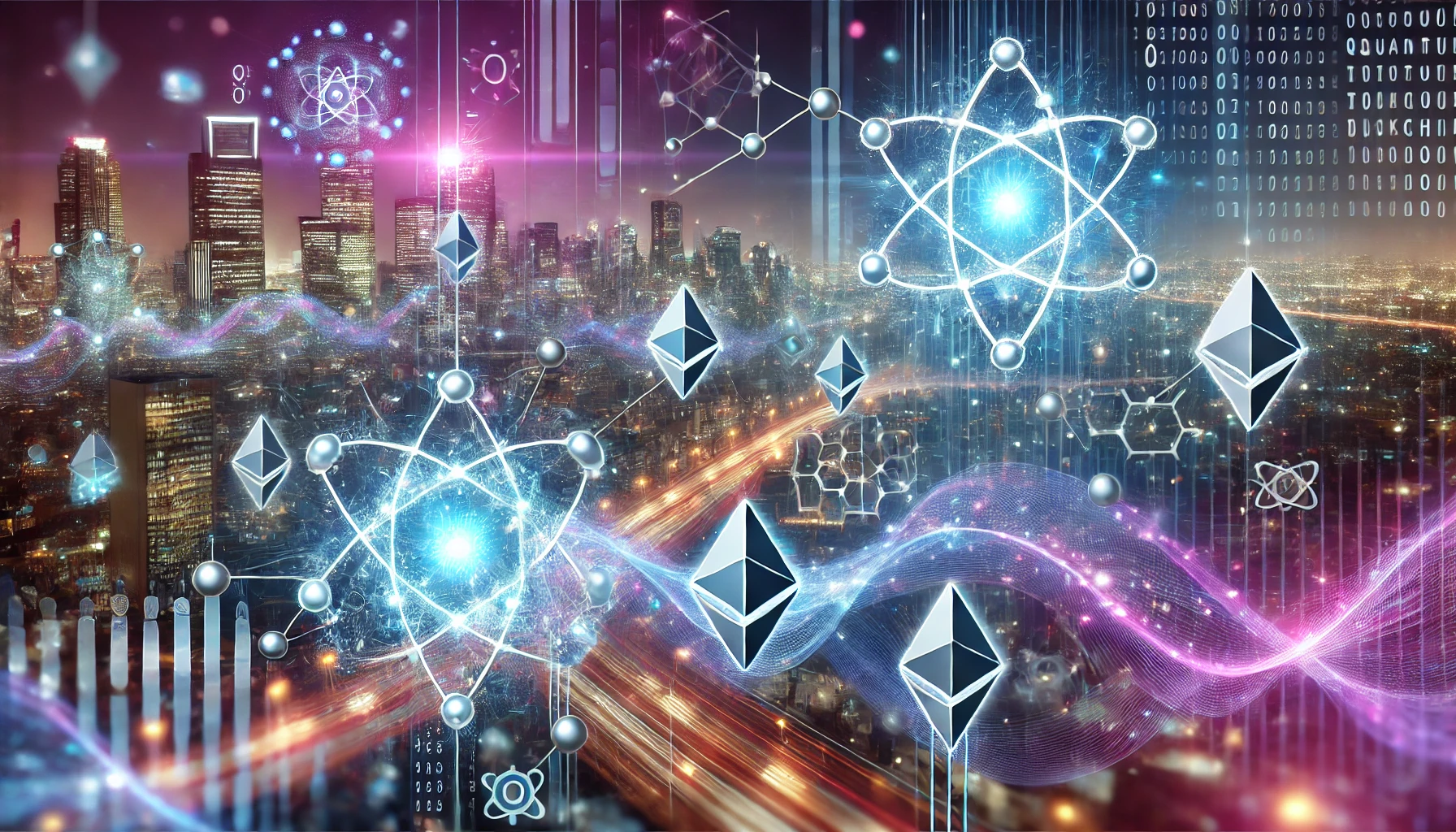The convergence of quantum information technologies and blockchain is revolutionizing the digital landscape, offering unprecedented possibilities for decentralized, secure, and efficient systems. As Web 3.0 continues to take shape, this fusion is set to redefine how digital services are delivered, paving the way for a next-generation decentralized society.
The Rise of Web 3.0
Web 3.0 represents the internet’s evolution into a decentralized ecosystem driven by blockchain, artificial intelligence (AI), and enhanced security frameworks. Unlike Web 2.0, which relies on centralized platforms, Web 3.0 empowers users by distributing control, data ownership, and trust through decentralized technologies.
However, scalability, efficiency, and security have remained challenges for blockchain platforms—limitations that quantum technologies are now poised to solve.
Quantum Information Technologies: A Game-Changer
Quantum information technologies leverage quantum mechanics to perform tasks beyond the capabilities of classical systems. Key components include:
- Quantum Computing: The ability to solve complex computations exponentially faster than traditional systems.
- Quantum Communication: Enabling unhackable data transmission using quantum key distribution (QKD).
- Quantum Cryptography: Offering ultra-secure protocols that can withstand even quantum-powered attacks.
When integrated with blockchain, quantum technologies provide solutions to critical challenges like security, transaction speed, and computational efficiency.
How Quantum Technologies Enhance Blockchain
- Quantum-Resistant Cryptography
As quantum computers develop, they pose a threat to current cryptographic standards used in blockchain networks. Quantum-resistant cryptographic algorithms, such as lattice-based or hash-based encryption, ensure that blockchains remain secure against quantum attacks. - Improved Scalability and Efficiency
Quantum computing can enhance blockchain consensus mechanisms. Quantum algorithms optimize transaction validation, reducing energy consumption and increasing processing speeds. Technologies like quantum annealing hold promise for solving complex optimization problems in blockchain systems. - Quantum AI on Blockchain Platforms
The integration of quantum-powered AI within blockchain offers decentralized, efficient AI services. Quantum AI can analyze massive datasets at unprecedented speeds, improving machine learning models for applications like fraud detection, decentralized finance (DeFi), and supply chain optimization. - Unbreakable Security Through Quantum Key Distribution
Quantum communication uses QKD to enable secure peer-to-peer networks. For Web 3.0, this means truly unhackable blockchain transactions, ensuring privacy and data integrity in a decentralized digital society.
Applications in Web 3.0
The convergence of quantum technologies and blockchain is driving innovation in key sectors of Web 3.0, including:
- Decentralized Finance (DeFi): Faster and more secure transactions powered by quantum-enhanced consensus mechanisms.
- Supply Chain Management: Improved transparency and efficiency through quantum-optimized data processing on blockchain.
- Secure Communication Networks: Quantum-safe protocols ensuring confidential, decentralized communications.
- AI-Powered Decentralized Applications: Quantum AI improves decentralized applications (dApps) by enabling advanced predictive analytics and real-time decision-making.
Challenges and Opportunities
While the potential is vast, challenges remain. Quantum technologies are still in their early stages, and integrating them with blockchain requires significant research and infrastructure. Key obstacles include:
- Cost: Developing quantum systems remains expensive.
- Adoption: Transitioning blockchain networks to quantum-resistant standards takes time.
- Complexity: Merging quantum computing with blockchain requires advanced expertise and innovative solutions.
Despite these hurdles, the opportunities outweigh the challenges. Collaboration between quantum researchers and blockchain developers is accelerating progress, and early adopters stand to benefit from a competitive edge in the emerging Web 3.0 ecosystem.
The Future of a Decentralized Digital Society
The convergence of quantum information technologies and blockchain is more than a technological advancement—it’s a paradigm shift. By addressing scalability, security, and efficiency challenges, quantum-powered blockchain systems will drive the next evolution of Web 3.0.
As we move towards a decentralized digital society, quantum technologies will play a pivotal role in ensuring trust, transparency, and innovation in the digital economy. From decentralized AI services to quantum-secure networks, this convergence marks the dawn of a future where technology empowers individuals and revolutionizes global systems.




